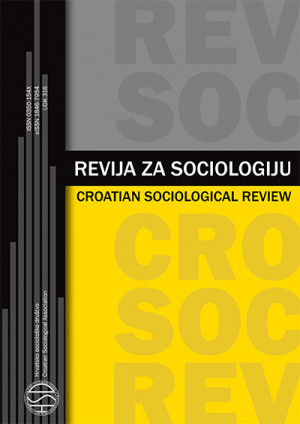Skrb za djecu bez pratnje u Hrvatskoj: uloge i iskustva posebnih skrbnika
Care for Unaccompanied Children in Croatia: The Roles and Experiences of Special Guardians
Author(s): Drago Župarić-Iljić, Dubravka MlinarićSubject(s): Welfare systems, Family and social welfare, Welfare services
Published by: Hrvatsko sociološko društvo
Keywords: unaccompanied children; special guardianship; family reunification; asylum in Croatia; Balkan corridor;
Summary/Abstract: In the period from 2011 to 2017, there was a fluctuating yet notable increase of unaccompanied minors transiting through Croatia. The 2015 and 2016 events involving the Balkan corridor included a significant number of unaccompanied and separated children, who count as vulnerable groups of refugees and migrants. State policies and measures aimed at providing care and protection to these groups include mechanisms of appointing special guardians, who are tasked with safeguarding their rights and providing general assistance within the system of care during their stay and/or during the status recognition procedure. Using a desk study of relevant accessible documents together with a thematic content analysis of 26 expert interviews that were conducted in three cycles; in 2014, 2016, and 2018 with relevant stakeholders and care providers, the authors discussed the experiences of practitioners in the field and some of the most important challenges they are facing within the special guardianship system. The general role of caregivers in the reception, integration and possible family reunification of unaccompanied children was also examined. The results suggested that due to short period of their stay in Croatia, and due to systemic insufficiencies within the system of care, the state is facing inconsistencies in the implementation of existing European Union standards and of national measures. The special guardianship care system for unaccompanied and separated children, which is moderately influenced by the 2015 and 2016 Balkan corridor experience, has been limited by lack of professional and financial resources, lack of stronger institutional support and somewhat overlapping competences of different parties in the system of care.
Journal: Revija za sociologiju
- Issue Year: 48/2018
- Issue No: 3
- Page Range: 297-327
- Page Count: 32
- Language: Croatian

